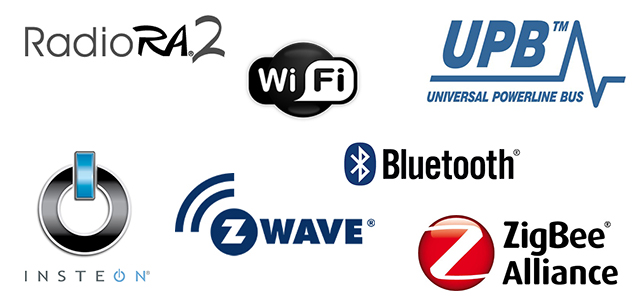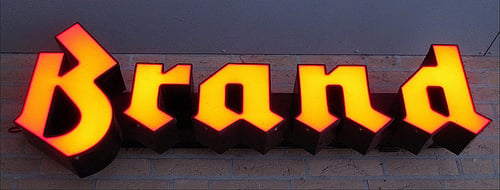![]()
There are many home automation options available to you today. Some are rather limited in their capabilities offering a single task solution (think a thermostat or door lock), while others allow you to take command of nearly everything in your home or even multiple homes. With so many choices and variations available many people find themselves overwhelmed and confused.
The best way of simplifying your search is understanding what you want to get out of a home control system and focusing on the options which best match your needs. Here are 5 questions to which you need to know the answers. Knowing them will help guide you to the right home automation system.
Before we dig into the questions, let's begin by making it easier to understand your options. In home automation there are two primary approaches that products and brands take on controls. One approach is focused on providing control for a single device or purpose, such as a thermostat, or a limited group of devices like your door locks or lighting. They use a proprietary technology which only works with their brand's devices. This approach is great if you only want to control for that individual task as it keeps setup and use simple. But, beware that if you decide later on you want to control more types of devices and address other tasks that different brands products won't work with them.
The other approach to home automation concentrates on a standards-based solution. This method is commonly refered to as the Smart Home, Connected Home, or the Internet of Things. The advantage here is that you can start off with control for a single device and expand it to add control of other types of devices as you desire. With these systems you can control a wide range of products from door locks, lights, and thermostats to security systems, video cameras, irrigation systems and water leak detectors. By choosing a standards-based system you are also able to mix and match devices from any brand that uses the same standard in their devices.
Once you've decided which one of the above approaches best fits your needs, it's time to ask a few more questions to further refine your options.

#1 Which communications technology does it use?
Proprietary solutions may use communications technologies which are based on standards, such as WiFi and Bluetooth, yet they use them in a way which only the products from their brand understand. Think of the standards like WiFi as human languages and the proprietary systems as dialects. Two brands may speak the same language, but because they speak different dialects they're not necessarily compatible with one another. When choosing a proprietary solution make sure to only use products from that manufacturer.
A standards-based solution still requires you to know with which of the major communications technologies your system is compatible. The vast majority of standards-based home automation systems use one of 4 communications technologies: Insteon, UPB, ZigBee, and Z-Wave. Some systems are only compatible with one of the four, while others such as Universal Devices ISY are capable of communicating across multiple.
It is very important for you to understand what communication methods your system supports, because it will determine which brands and products you can add to it.
#2 What brand(s) are supported?
The beauty of a standards-based system is that it opens the door to products from many manufacturers. Some brands have different product lines to provide compatibility with more than one communications technology, while others only support a single one.
If you're dead set on using products from specific brands, do some research prior to choosing a home control system to make sure they all use the same technology. Be prepared for the posibility that you may have to compromise, or select a system which supports each of the technologies your prefered products use.

#3 How do I access and manage my system?
There are two primary methods used to manage any home control system: directly connecting to your system's controller, or via a web-based portal. Some systems only provide access one way, while others provide access by both methods.
Directly connecting to your system's controller allows you to access and manage your system without any intermediary. These types of systems don't require you to setup an account with the manufacturer and come pre-loaded with a default username and password on the controller. You simply go to the address provided in the user documentation and enter your credintials. It's quick to get started with and also provides a high level of reliability when it comes to being able to communicate with your system. But, it may come at the expense of your support provider being able to access it remotely.
The web-based portal method requires you to create an account on a brand provided web site. Managing the setup and configuration of these systems must be done through the portal. They usually benefit from graphically pleasing and easy to use screens for managing your system. However, it also means your ability to manage your system is dependent upon having a connection to the Internet and the manufacturer continuing to keep their web portal in operation.

#4 Is there a monthy fee for anything?And what happens to my system if I stop paying?
Some brands require you to pay a recurring fee to access the web portal you're required to use for managing your system. Others charge a monthly "service fee" to provide access to your system. While yet others charge no fees at all. Be sure to ask your provider this question before you make your buying decision.
In the case where your proivder does charge a fee, understand that those fees can range from $4.99/ mo. to a considerable $80.00/ mo. In certain cases they are just flat fees, while in others how much you pay is determined by the number and types of devices your system contains.
It's also critically important to ask what happens in the event you decide to stop paying those fees. Will you still be able to access your system? What functionality would you lose in doing so? In most cases if the provider requires a fee, discontinuing payment will result in completely losing the use of your system.

#5 What level of service and support do they provide? Are there local companies that you can call upon?
Regardless of the system you buy there's always a possibility that you'll find yourself needing assistance. It's always a good idea to know how you can get help when you need it and who can provide it. Some brands have authorized dealers based locally, while others rely solely on call centers and web-based support. Make certain that you know what kind of service your system offers and that it matches your level of expectations.
Finding the right home automation system for anyone is a process. The key to making that journey more enjoyable and a success is in knowing the right questions to ask. We've empowered you with five of the most important answers to seek in order to simplify your buying decision. You can discover more about smart homes and automation in our ebooks, guides, and other posts.







